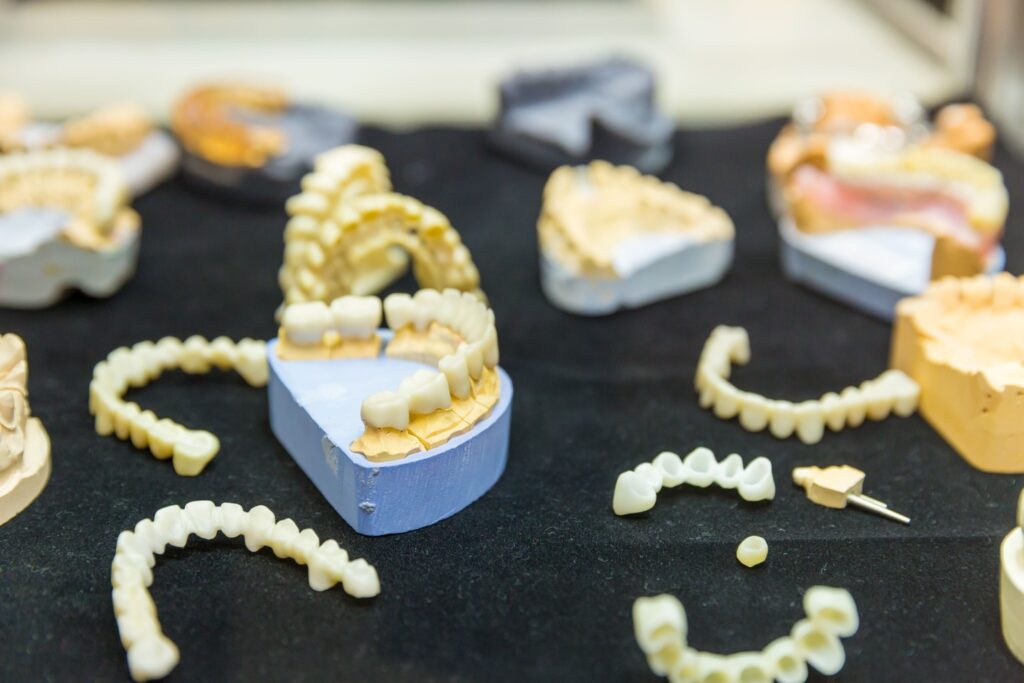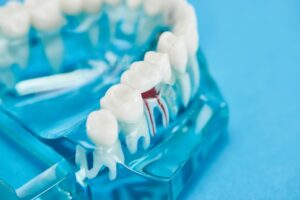Deciding between partials and full dentures is a significant choice for those looking to restore their smile and oral function. Each option has its unique benefits and considerations, making it essential to understand which one is best suited for your specific needs. This guide will help you compare partials and full dentures, providing you with the information necessary to make an informed decision about your dental health.
Understanding Partials and Full Dentures
Partials: Partials, or partial dentures, are designed to replace one or several missing teeth. They consist of replacement teeth attached to a gum-colored plastic base, which is often connected by a metal framework that holds the denture in place within the mouth. Partials can be either removable or fixed, depending on your preference and dental needs.
Full Dentures: Full dentures, also known as complete dentures, replace all of the natural teeth in either the upper or lower jaw, or both. These removable prosthetics are designed to rest directly on the gums and provide a full set of teeth for those who have lost all of their natural teeth.
Key Differences Between Partials and Full Dentures
1. Number of Teeth Replaced:
- Partials: Suitable for patients missing one or several teeth but still having some natural teeth remaining.
- Full Dentures: Ideal for individuals who have lost all their natural teeth in either the upper or lower jaw.
2. Support and Stability:
- Partials: Gain support and stability from the remaining natural teeth, which help anchor the denture in place.
- Full Dentures: Rely on suction and the natural shape of the gums and jawbone for support and stability. In some cases, denture adhesives may be used to enhance stability.
3. Maintenance and Care:
- Partials: Require regular cleaning and maintenance, similar to full dentures, but also involve caring for the remaining natural teeth.
- Full Dentures: Need to be cleaned daily and soaked overnight in a denture cleaning solution to maintain their shape and hygiene.
Benefits of Partials
1. Preservation of Natural Teeth: Partials allow you to retain your remaining natural teeth, which helps maintain the structure of your jawbone and prevent bone loss.
2. Improved Oral Function: By replacing missing teeth, partials restore your ability to chew and speak effectively, enhancing your overall quality of life.
3. Aesthetic Improvement: Partials fill in gaps caused by missing teeth, providing a natural-looking smile and boosting your confidence.
4. Custom Fit: Partials are custom-made to fit your mouth precisely, ensuring comfort and functionality.
Benefits of Full Dentures
1. Comprehensive Solution: Full dentures provide a complete set of teeth for individuals who have lost all their natural teeth, restoring both appearance and function.
2. Enhanced Appearance: Modern full dentures are designed to look natural and improve facial aesthetics by supporting the lips and cheeks, preventing the sunken appearance that can occur with tooth loss.
3. Improved Oral Health: Full dentures help maintain oral health by replacing missing teeth and allowing for proper chewing and digestion.
4. Cost-Effective: Full dentures are generally more affordable than multiple partials or other tooth replacement options, making them a cost-effective solution for full-mouth restoration.

Factors to Consider When Choosing Between Partials and Full Dentures
1. Oral Health Status: Consider the condition of your remaining teeth and gums. If you have healthy teeth left, partials might be the better option. If most or all of your teeth are missing or in poor condition, full dentures could be more suitable.
2. Bone Health: The health and density of your jawbone can affect the stability and fit of dentures. A dental professional can assess your bone health and recommend the best option.
3. Lifestyle and Preferences: Think about your lifestyle, preferences, and comfort level with removable versus fixed prosthetics. Partials are typically easier to adjust to for those who are not used to wearing dentures.
4. Budget: Consider your budget and the cost of each option. While full dentures might be more affordable upfront, partials might be a better investment if you aim to preserve your natural teeth.
Consultation and Customization
The best way to determine whether partials or full dentures are right for you is to consult with a dental professional. At UltraSmile Miami, our experienced team will assess your oral health, discuss your goals, and recommend the most suitable option for your needs. Both partials and full dentures are custom-made to fit your mouth, ensuring maximum comfort and functionality.
Conclusion
Choosing between partials and full dentures depends on your specific dental needs, preferences, and overall oral health. Understanding the differences and benefits of each option can help you make an informed decision. Whether you need partials to replace a few missing teeth or full dentures for a complete smile makeover, UltraSmile Miami is here to provide expert care and personalized treatment plans. Schedule a consultation with us today to explore your options and take the first step toward a healthier, more confident smile.







